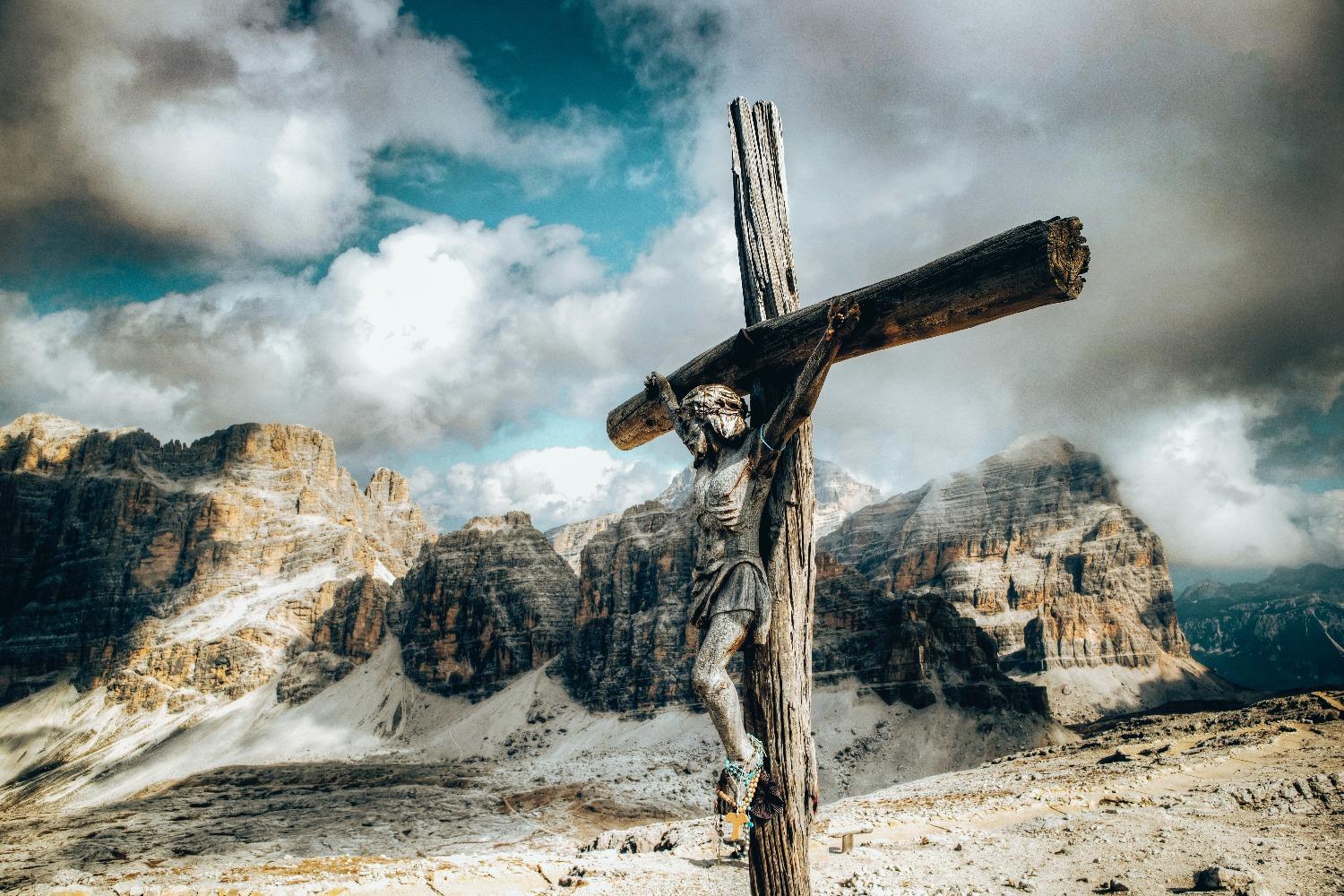
With San Francisco Archbishop Salvatore Cordileone’s announcement that Speaker Nancy Pelosi has been barred from receiving Communion in her home diocese until she repents of her public support of legalized abortion, a frequently recurring debate has been brought back to the fore. Many political commentators have declared the move to be an inappropriate meddling of the Church in affairs of the State. (Such a stance, of course, overlooks the fact that Archbishop Cordileone spoke to Pelosi insofar as she is a voluntary member of the Church, over which he is a recognized authority. Rather than dictating a political position to everyone, Archbishop Cordileone spoke to a member of a communion.) More broadly, many Christians and non-Christians alike have seen the bishop’s actions as undermining an individual’s personal discernment and relationship with God. Whoopi Goldberg spoke aloud what even some Christians have likely thought in their hearts: “This is not your job, dude! You can’t – that is not up to you to make that decision!” How are Christians (and in this case, Catholics in particular) to respond?
Goldberg’s comments are unsurprising through the lens of the modern secular vision. This vision, which impacts the thinking of virtually everyone who lives in the West today, places a high value on what we can call the principle of radical autonomy, which can be stated something like this: The highest value of the human person is the ability to choose, and any actions that limit or impede the choices of others should be discouraged or minimized to the greatest reasonable extent. For an example of how this mindset has settled into American life, look no further than the Supreme Court’s 1992 decision in Planned Parenthood v. Casey, which declared: “At the heart of liberty is the right to define one’s own concept of existence, the meaning of the universe, and the mystery of human life.” While existence, the universe, and human nature repeatedly lodge social, psychological, and scientific objects to this pronouncement, many of us have bought into it to some extent. More restrained versions of this mentality limit their existence-defining abilities to the safety of their own homes and the interactions of consenting adults: Who are you to say anything about what I do within the safety of my own home? The less restrained version of this mentality extends beyond the doorstep, going so far as to place a burden of acquiescence and affirmation on all members of society: Who are you to say anything about what I do? I have defined my own concept of existence, and unless you play along, you will violate my choice, my identity, and my dignity.
The socio-political ramifications of the principle of radical autonomy surround us daily. While such a worldview skews our vision of human life broadly, it proves to be particularly troublesome when applied to the Church and the Gospel. In short, the principle of radical autonomy inhibits us from entering into a rightly ordered relationship with God. First, this principle is itself founded upon a deeper philosophic commitment, namely, that the only true source of human dignity and fulfillment is the ability to self-create. This further implies that there is no God who meaningfully created us. Furthermore, the principle of radical autonomy contradicts the Gospel from the outset, rendering obedience to Christ impossible. The principle of radical autonomy says, “My judgment is the ultimate arbiter of truth, and my desires guide my way. My life is my own.” The Gospel decrees that your life is not your own, as Christ declares, “I am the way, the truth, and the life.” The secular vision declares that we are the authors of reality, quietly (and sometimes not so quietly) taking upon ourselves an Authorship for which we are terribly, comically ill-suited. When we attempt to approach the Gospel through a lens of radical autonomy, even our points of agreement with particular doctrines represent little more than happy accidents. Such a vision may momentarily liberate us from unwanted burdens of responsibility, but we should not be surprised when we find ourselves listless and adrift as a result.
For Christians, a central characteristic of discipleship is that of pierceability of heart, whereby we recognize that we have fallen short and sinned (cf., Romans 3:23). When we harden our hearts to teachings we cannot rectify with our current vision of the world or the discomfort of admitting our own moral failings, we render ourselves artificially immune to the truth of the Gospel. Only with such pierceability, uncomfortable as it is, can the Gospel begin to make sense. Because we have fallen short, we approach the Christian Church not as creators (or even activists) seeking to remake it in our image, but as sinners in desperate need of a Savior.
How can we counter the principle of radical autonomy and arrive at pierceability? Perhaps something akin to a principle of formation could serve as an antidote: We have been created with a normative nature, and the point of life is to arrive at our true selves, which means becoming conformed to Christ. We must approach all aspects of the life of the Church – and in fact, life in general – through a desire to be conformed to Christ. While such a principle of formation accounts for the same experience of incompleteness the secular vision attempts to address through its commitments to self-creation and autonomy, it shifts our focus entirely: It is Christ, not me, who brings all things to their proper fulfillment. When such an approach is taken, one’s personal preferences in terms of liturgy and art rightly take second place to sacramental realities and the authority of the Church; the moral and intellectual guidance of the Gospel (and for Catholics, Church teaching) becomes the standard of truth by which one’s life will ultimately be judged, rather than vice versa; Christianity is approached on its own terms rather than subjected to our individual demands. Under the principle of radical autonomy, the Church is regarded as something that needs to bend to modern ideas. Under the principle of formation, the Church is recognized as something enduring, preaching perennial truths from age to age.
Christianity cannot rightly be viewed through the lens of the principle of radical autonomy. Under such a view, the teachings and pronouncements of the Church (such as Archbishop Cordileone’s regarding Speaker Pelosi) are symbolic at best and a nuisance at worst. However, when viewed through something akin to the principle of formation, the Gospel and life of the Church clarify. Far from being a forum for our self-creation and demands, the Church is a school for our formation and salvation. Far from being an affirmation of the course we are on, the Gospel is recognized as a new, utterly different path. When we approach the Church through a principle of radical autonomy, it offers us nothing. When we approach the Church through a principle of formation, it emerges as a field hospital for sinners and God’s radical response to a broken humanity.


